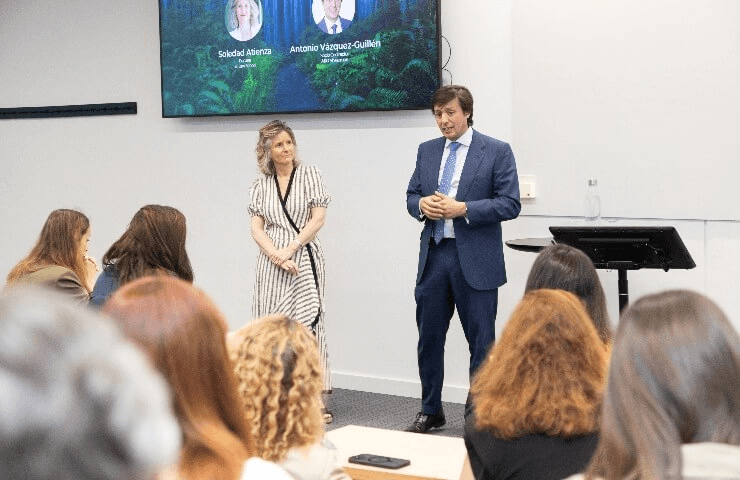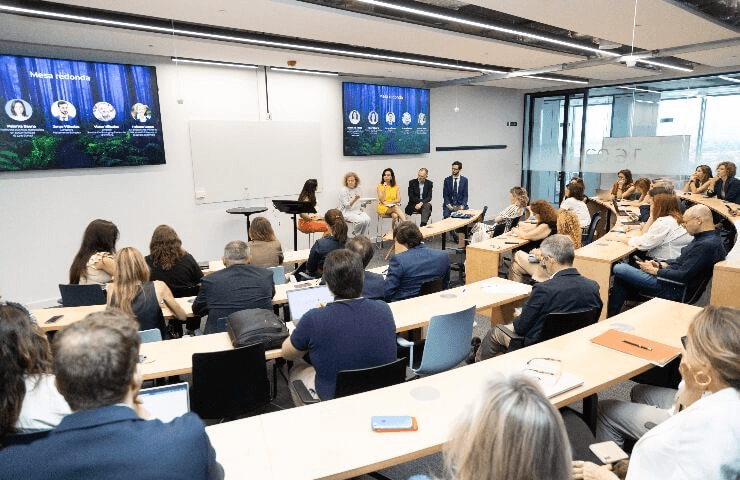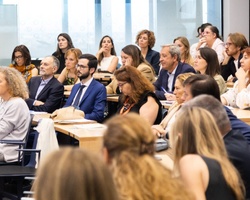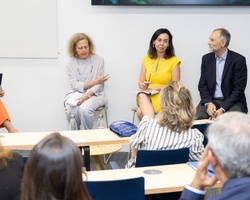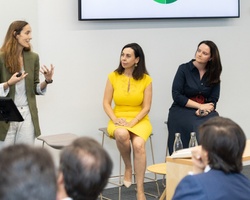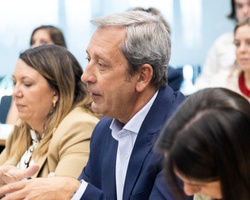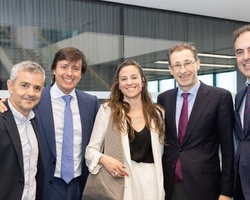- Home
- We Are Law School
- News
- Global Corporate Climate Governance Challenges
Global corporate climate governance challenges
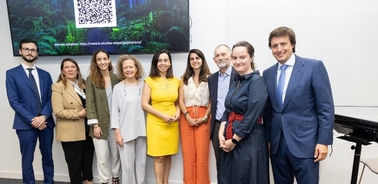
IE Law School and A&O Shearman present their report ‘Corporate Climate Governance and the Road to Net Zero’ at an event that brings together experts and companies.
On July 2, IE Law School presented the report Corporate Climate Governance and the Road to Net Zero: Relevance, Challenges, and Impact in Practice, in collaboration with A&O Shearman.
The event at IE Tower, featuring experts and representatives from various companies, was presented by Soledad Atienza, Dean of IE Law School, and Antonio Vázquez-Guillén, Co-Managing Partner of A&O Shearman.
Paloma Baena, the director of the report and Professor of Sustainability, Economic Development and International Affairs at IE Law School, introduced the context and objectives of this comprehensive research project. The key findings and conclusions were then presented by two members of the A&O Shearman working group: Mónica Represa, Head of Knowledge, and Reka Palla, Corporate and M&A Senior Associate.
The report offers a comprehensive analysis of corporate climate governance across various jurisdictions, focusing on crucial areas ranging from environmental impact measurement and the most prevalent reporting frameworks to carbon neutrality targets or the complexities of greenwashing.
The study concludes with a series of recommendations on practices, policies, and structures that companies can integrate into their sustainability strategies. These recommendations aim not only to reduce climate-related risks and impacts but also to create new business opportunities.
The active role of business in climate governance
Following the report presentation, a round table discussion was moderated by Isabela del Alcázar, Director General of Sustainability at IE University. Participants included Paloma Baena; Paloma Durán, former Director of the United Nations Fund for Sustainable Development; Jorge Viñuelas, Counselor of the European Parliament; and Víctor Viñuales, Director of the Ecology and Development Foundation (ECODES).
The first speaker, Paloma Durán, criticized the dual materiality approach of the new European Corporate Sustainability Reporting Directive (CSRD), describing it as the antithesis of the United Nations proposal. She also emphasized the importance of considering input from companies of all sectors and sizes when developing legislation and setting standards.
Jorge Viñuelas, who has been involved in developing the new European Directive on Corporate Sustainability Due Diligence and CSRD reporting parameters for the past four years, provided an overview of the approval process. He explained that the initial ambitious scope of the regulation had to be scaled back to secure approval from all member states.
Paloma Baena highlighted the challenge of harmonizing sustainability criteria and indicators to facilitate comparative performance analyses between companies. She emphasized the significant impact of climate responsibility on the lives of millions, who are often forced to migrate or experience a diminished quality of life.
Finally, Víctor Viñuales presented encouraging data on the responsible performance of Spanish companies and households in recent years. He also offered a list of recommendations, urging companies to take the initiative in sustainability efforts despite the public sector's electoral short-termism. Viñuales emphasized the significant influence companies can have on their suppliers.
Judicialization of environmental liability
The colloquium concluded with a question-and-answer session, where private sector representatives voiced their concerns about recent regulatory changes. Topics included litigation arising from environmental liability of companies and governments, an issue also addressed in the report. The discussion covered the increasing trend of judicializing climate inaction, highlighted by recent cases in the Netherlands and the USA, and the use of shareholder votes to remove corporate boards that fail to take climate change seriously.
With this report, IE Law School and A&O Shearman aim to significantly contribute to the advancement of governance practices that promote sustainable business strategies in line with global sustainability goals and standards. The study is another example of IE Law School's commitment to the creation and dissemination of knowledge relevant to industry, society and public policy.
"ESG is the language of sustainability, yet it doesn't always facilitate mutual understanding."
Paloma Baena, Professor of Sustainability, Economic Development and International Affairs at IE Law School
